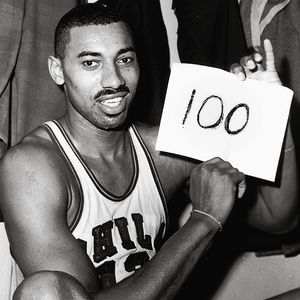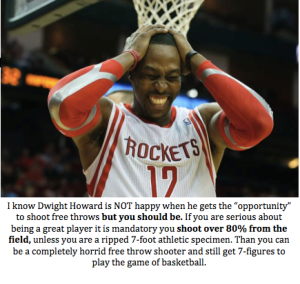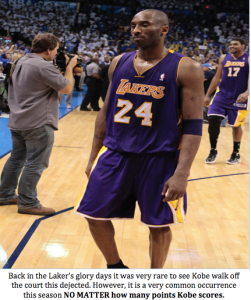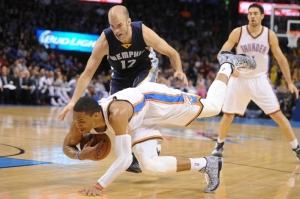This post was motivated by my experience playing my first intramural basketball game of the year at UBC. It was a very frustrating but fun game at the same time. We were down by 25 points at one point but got it down to 6 points with a couple of minutes remaining but we just could NOT close the gap. Why not? The rest of the post will delve into this and this lesson is really important for any of you who are going to be leaders of your team and need to decide what’s the best way you can contribute to lead your team to victory. I did NOT make the correct decision in my game and it cost our team the game.
 There is this extremely pervasive but untrue myth in basketball that to be an amazing scorer that you need outstanding or out of this world offensive skills. That is just NOT the case. Unless you are playing in the NBA or for a high major D1 college you do NOT need outstanding or out of this world skills (although it can not hurt). This is very analogous to why you don’t need world class speed to blow by opponents. Only at the highest level in which everyone has world class size, length and speed do you need to have the extra gear as well to be a great scorer. This is what separates the MJ’s and the Kobe’s of the world from our mere mortals. Nevertheless they still flawlessly execute the two key principles I have mentioned below.
There is this extremely pervasive but untrue myth in basketball that to be an amazing scorer that you need outstanding or out of this world offensive skills. That is just NOT the case. Unless you are playing in the NBA or for a high major D1 college you do NOT need outstanding or out of this world skills (although it can not hurt). This is very analogous to why you don’t need world class speed to blow by opponents. Only at the highest level in which everyone has world class size, length and speed do you need to have the extra gear as well to be a great scorer. This is what separates the MJ’s and the Kobe’s of the world from our mere mortals. Nevertheless they still flawlessly execute the two key principles I have mentioned below.
You need to do the following two things to become a great scorer:
- Get to the Free Throw Line – This is not only a great way to rack up easy points ( but it is also a great barometer of how aggressive you are being). However, if you are being aggressive but are not able to get to the free-throw that means you are having troubles getting past your man cleanly and getting to the rim. This is a skill you must have if you wish to play at the next level, and is something you need to work on right now. There will be a future post very soon on how to increase the frequency you get to the line.
- Be able to score in a variety of ways –You do NOT need any one world class skill but you do NEED a variety of good skills that will allow you to score one or two times in a variety of ways. Unless you are Lebron James just having a hesitation and then plow your way to the hoop is NOT going to be good enough to allow you to be a great scorer.
So I am going to give you a quick re-cap of my own performance in my game to highlight how these principles apply in a real game. This game was my first real game in a full court in over 4 months. Also, I am involved in a very busy and demanding graduate program and teach part time. So I am not training all day to become a great basketball player. Therefore, my performances was NOT due to improved preparation/training but because I understood the framework above. In reality I am most likely playing much much less frequently than most of the people who compete in the Elite division intramural league.
So I made sure early on in the game to be aggressive and create the precedent of getting to the free-throw line. Overall I had about 8-10 points from the free-throw line (a couple of and 1’s). Then I hit about 2 three pointers off kick outs and three I created myself. So right there is around 25 points. I hit a lay-up form a steal, and a pull-up jumper. Throw in a couple of And 1’s. There is around 35ish points. I am NOT telling this to show off how great I am. That is NOT the point of this. The key is that despite me being able to score well and efficiently we lost!
What was I doing wrong? Scoring is extremely taxing and completely drains you. Even the great Kobe Bryant in his old age has come to the realization that scoring drains your legs more than anything else. Unlike Kobe I am a young guy, but I have NOT been running hard enough to score the way I did and still contribute in other facets of the game.
Even though I was able to score efficiently the game seemed like such a struggle and we were never able to capture a lead. What was I doing wrong? I was NOT focusing my energy on the aspects of the game our team needed the most.
We had no business losing to the team we played, and no excuse at all to be down by 25. There were a very bad team, but they did have some big strong guys, and our team is very offensively talented but small. Therefore we got absolutely killed on the boards.
The video above was embarrassingly indicative of my defensive effort in my game. Why? Because my energy was drained from scoring.
Usually I am a really good rebounder and defender and that is where my team needed me the most. However, I was unable to help my team in that respect because I had consumed all my energy scoring. Obviously it would be ideal to be able to do everything, however, that is what makes MJ such a special player because he did NOT have to follow the rule of physics and have to worry about energy management like the rest of us. If you are NOT MJ then it is vital that you focus your limited energy in a game to the areas that your teams needs the MOST!
In retrospect to best help my team I should have focused more on facilitating, as we had a handful of both good shooters and finishers, and funnel my limited energy to defending and rebounding which was an area our team was lacking. This is a very important concept and one that many young players do NOT take into account. I know I did not. Just because you can score a lot of points does NOT mean you should/need too unless its the best use of your energy to help your team win. At the end of the day it does NOT matter how many points YOU score but that your team scores more than the other team.
Be Happy and Chase your Dreams,
Pavan Mehat
PS Here are a couple of ways to connect with me if you have any questions or have any specific topics you would like me to address.







